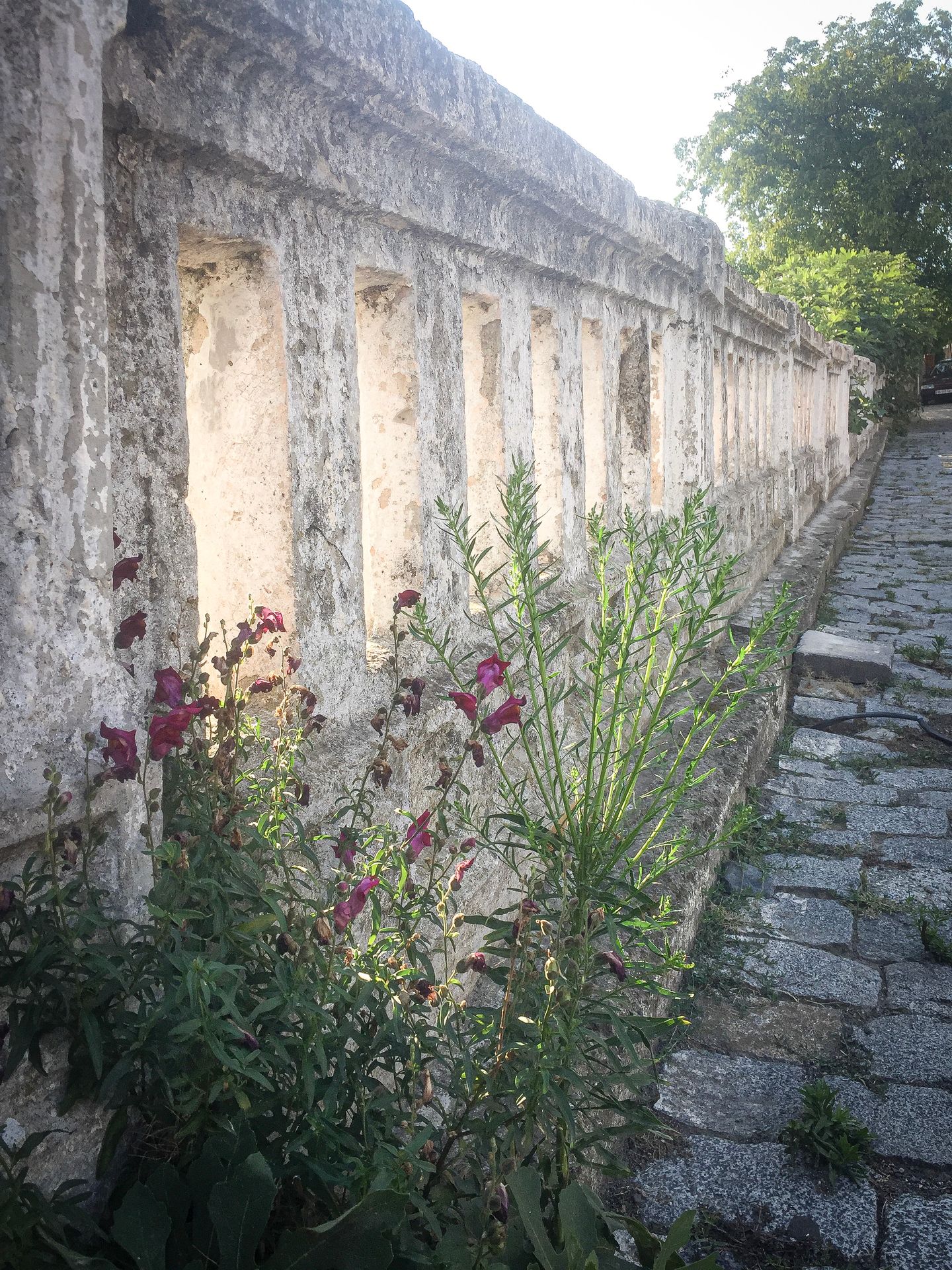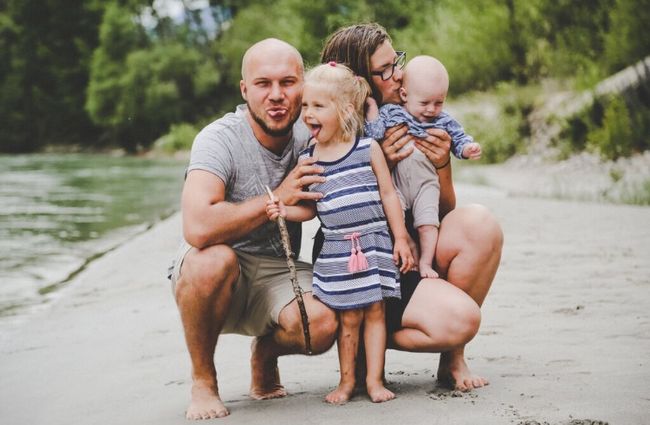Shoulder to shoulder in weightlessness
ئېلان قىلىندى: 22.10.2019
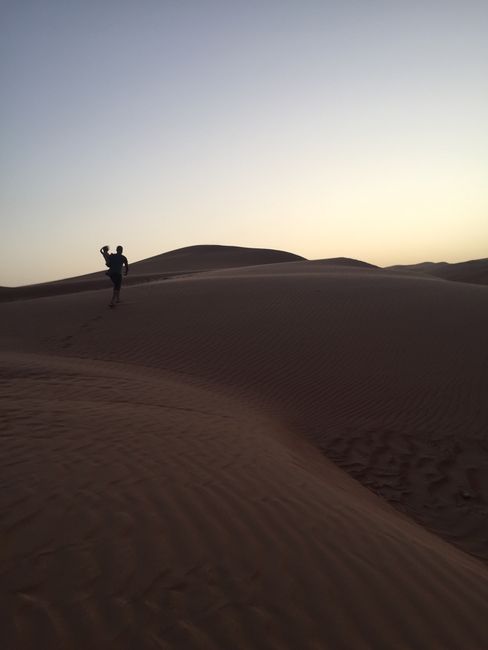
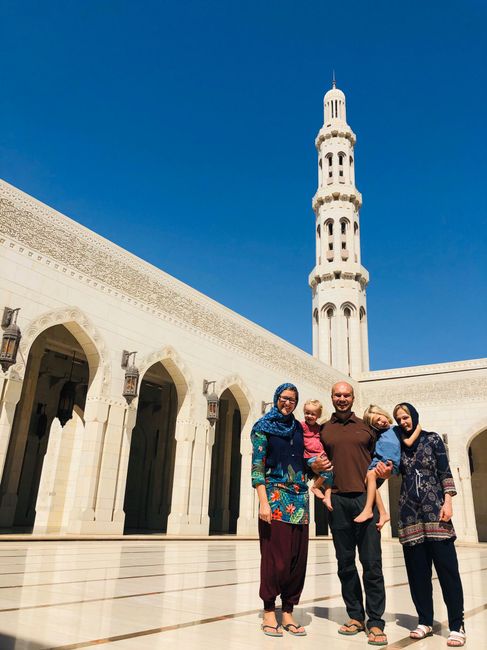
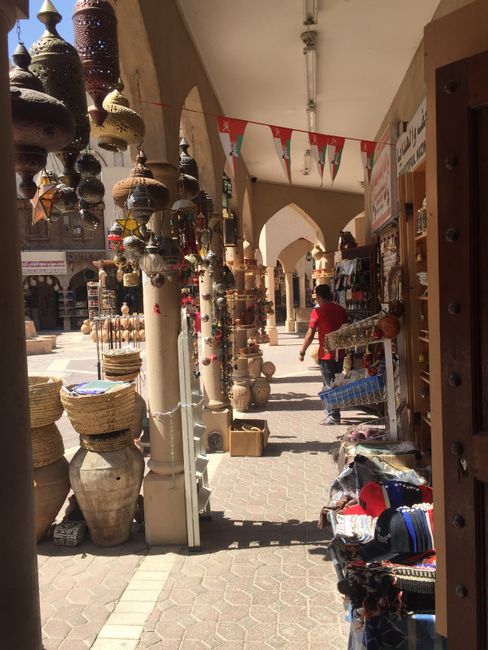
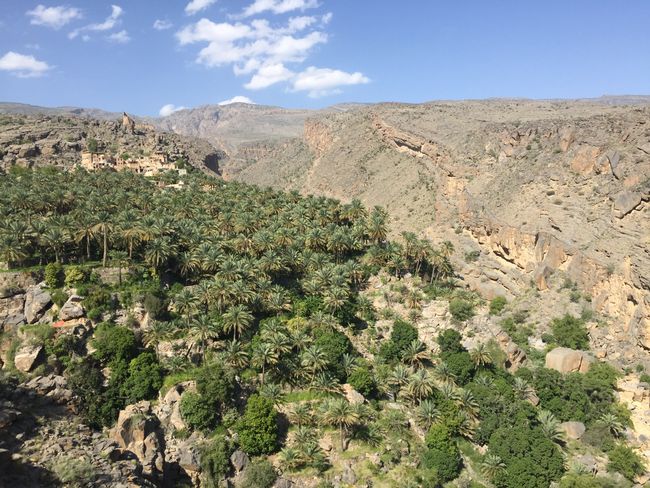
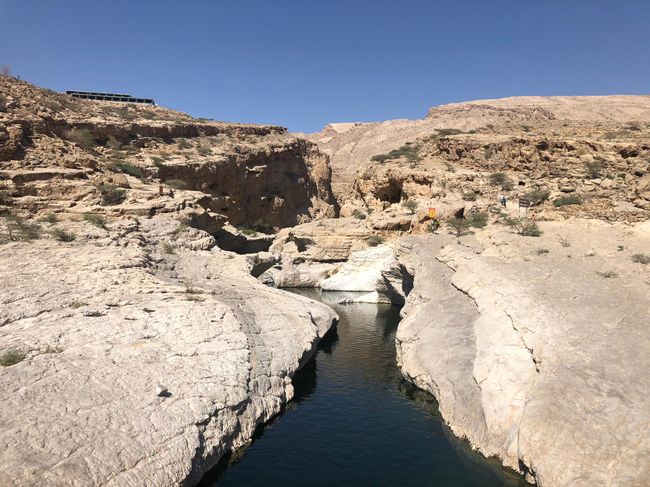
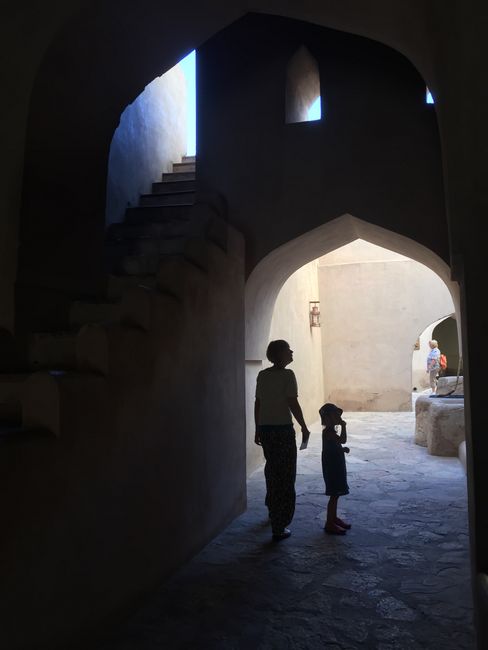
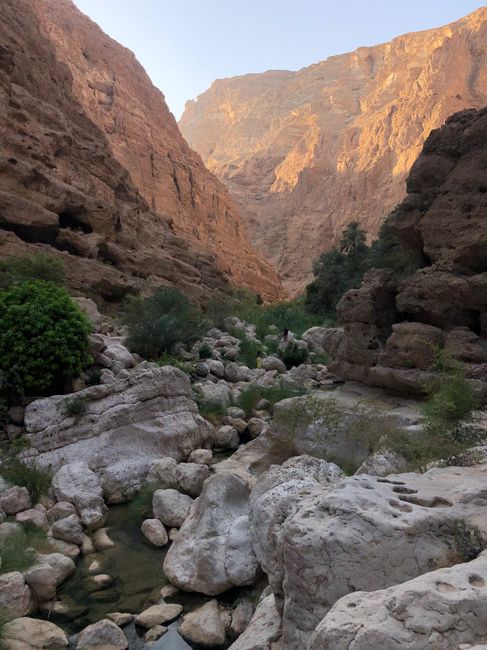
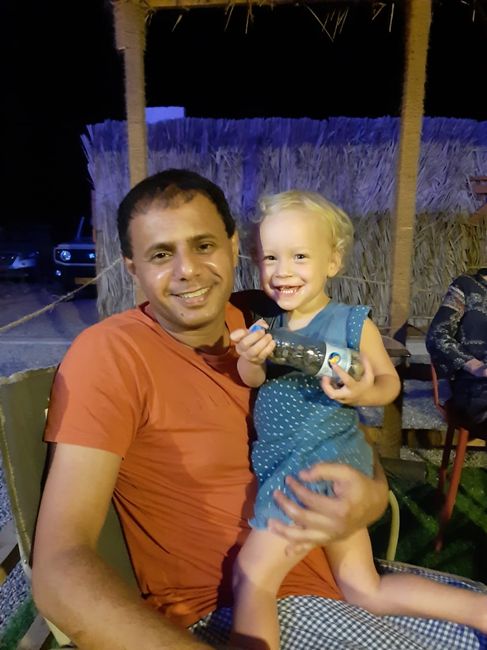
گېزىتلەرگە مۇشتەرى بولۇڭ
After 3 weeks on the Arabian Peninsula, we have become accustomed to the environment. We have become accustomed to seeing men in skirts, not speaking to the opposite sex, jumping into the sea fully dressed, and drinking tea with condensed milk. Actually, now is the time when we could arrive - get closer to the language, meet people internally, stay and immerse ourselves somewhere in a village. But unfortunately, we are moving on again right now. Now would actually be the time to move shoulder to shoulder with the people here. And to learn how to better understand the moments of weightlessness and incomprehension that we have experienced and observed.

Our friend Claudia from Wallis visited us for 10 days, and we traveled together from Masqat, the capital on the coast, to the interior of Oman. It was a successful road trip with our rented car. A desert road trip. The landscape consists of rugged, rocky mountains that present themselves in various shades of blue in the hazy light. In between, you pass through settlements and villages that have been built right in the middle of the rocky scenery, each house a fortress against sand and heat. Only if you know where to go, you will find the way into the canyons that open up between the mountains. Here, water emerges from the mountain. Not the water that shaped these gigantic canyons, but enough water that collects in deep pools and jumps over the rocks as waterfalls.

Thanks to humans, this has developed into a green oasis. The water is cleverly diverted and distributed so that large date palm plantations, green grass (as animal feed), banana trees, and many other plants grow. The difference between the rocky landscape and these green parks, where a gentle breeze blows and you can hear the constant splashing of water, could not be greater. The wadis we visited often had small villages where people still make a living from the proceeds of dates and livestock. And here, our first speechless encounters also took place.
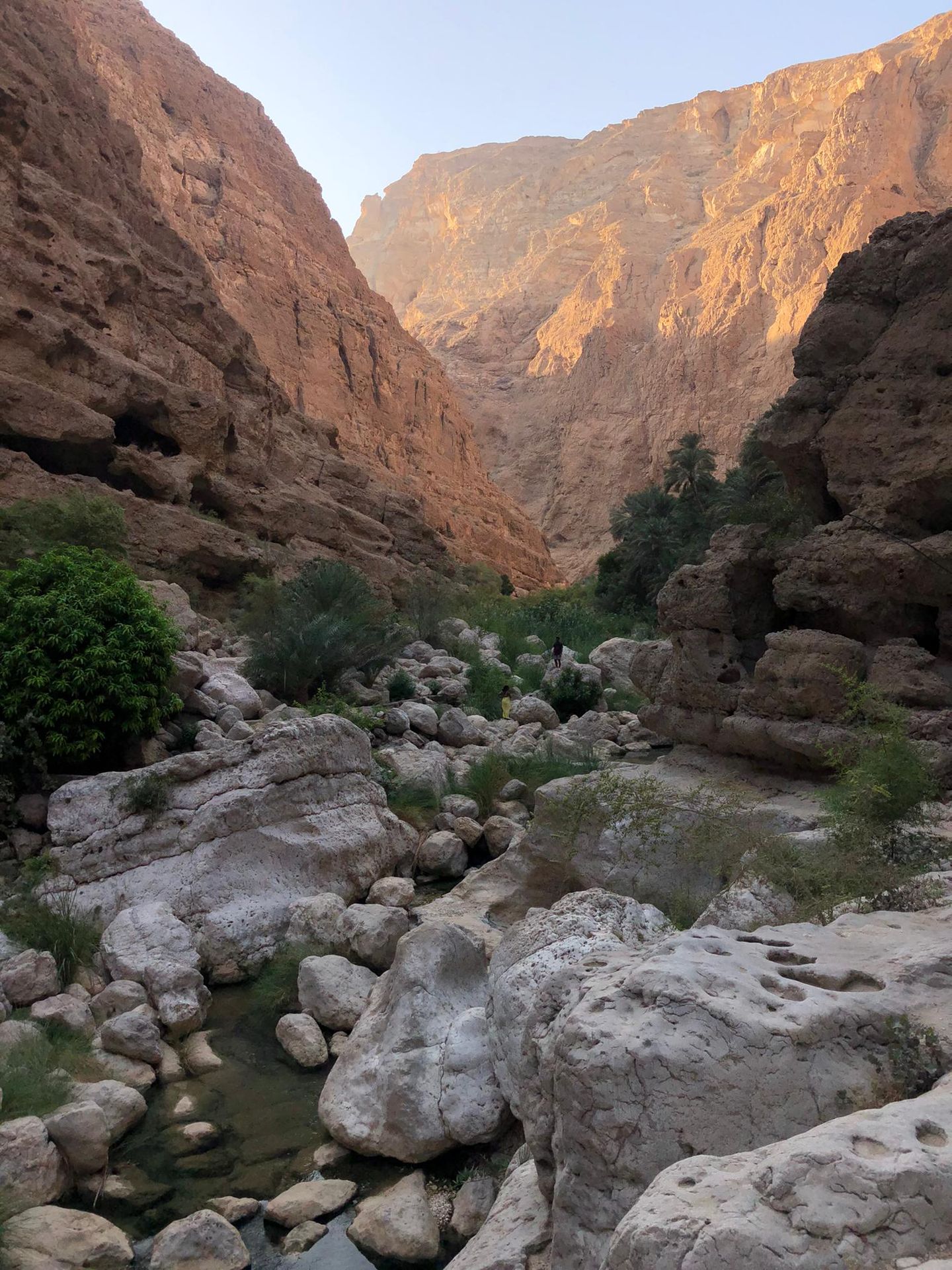
While people in the big cities (sometimes surprisingly good and sometimes surprisingly bad) speak English, we found out during a visit to these villages that apart from a few scraps of Arabic or English, only sign language remained. After our time in the Caucasus, where Didi could speak with anyone in Russian, this was a new experience. Speechlessness means that many pieces of information cannot be exchanged. Encounters cannot deepen. And yet, other information becomes so much more important. For example, facial expression. Or eyes.
We got quite lost in search of a beautiful bathing spot. First, we hoisted ourselves, along with all the picnic stuff and the children, from rock to rock, then we balanced on narrow water pipes, and finally dared to descend steeply over sticks and stones. We were so glad when we reached the water. After a few minutes, a local man climbed up to us. He could have also been an Indian fakir, with his shaggy hair, uncertain age for us, and long skirt. He gestured and pointed behind him. Probably there was a better way than the one we had taken. Unfortunately, we could only guess - there it was, the speechlessness, which stood between us like a wall - and even when the man called from a distance and pointed to a blinking object, we could only presume that he had killed a snake in front of our eyes.
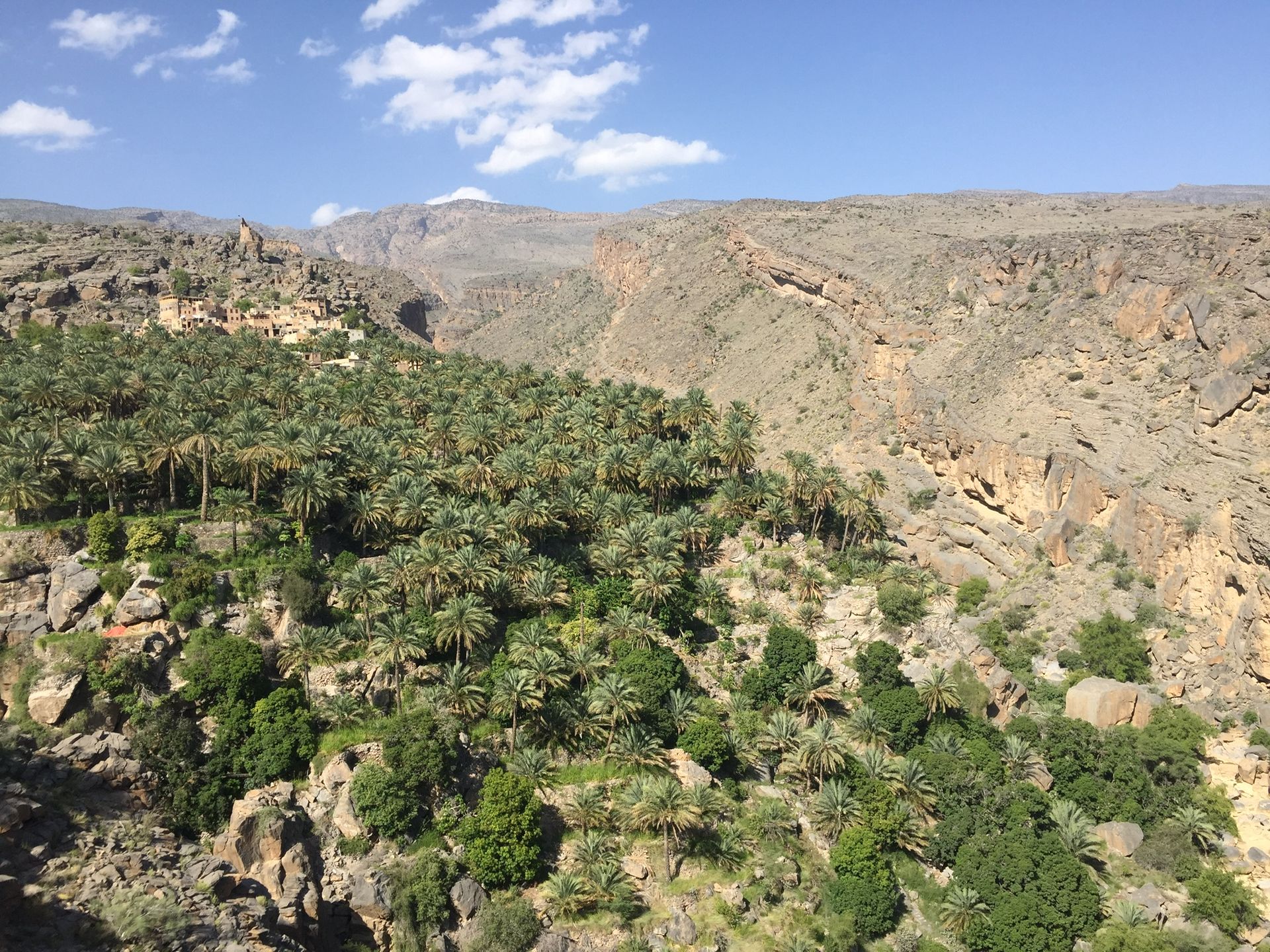
Not only the language, but also the culture was initially foreign to us. Near a traditional mountain village, we explored the picturesque gardens and hiking trails. As we walked through the village, we observed a tourist taking out her camera to photograph a local woman from a distance. Instinctively, we knew that this would not be a good idea. Signs everywhere indicate that the residents - especially the women - do not want to be photographed without permission. But what happened next happened so quickly that it remained difficult to understand. The local woman made noises, which irritated the tourist, but she did not put down her camera. Within a short time, a stone rained down towards the camera. We, the witnesses of this unpleasant encounter, were shocked at how quickly speechlessness can turn into a misunderstanding, because the tourist no longer tried to take a photo, but to ask for permission. And we were also surprised by the violent reaction. This conflict could not be solved with words. The stone spoke a clear language of anger.
But we not only visited mountain villages, but also cities. In Nizwa, an idyllic desert town, we stayed for a few days and visited the old town and the market. From a distance, I saw women sitting on the ground and thought it would be a good opportunity to get to know them and ask them in Arabic what handicraft they were doing. That turned out to be a bad idea right away, because they only wanted to sell their goods and praised them highly. Our oldest daughter was also eyeing a colorful bag, and now I had to somehow detach myself from the saleswomen and calm down a begging child because we would not buy anything (iron policy on our journey). In that moment, the market woman put a bag in our hands. The seconds that followed could have also been hours. What do I do now? I don't want to buy this thing. Do I accept it as a gift and harm her business? Or do I fall for her trick and give her money? Although the woman gestured that it was a gift and she didn't want anything, I felt totally unsure. It was like floating in dark space as an astronaut - without orientation. How do I say something? How do I read thoughts? How do I interpret the moment? Only afterwards did it become clear to me that I would have liked to give her something in return. Unfortunately, she was already gone.
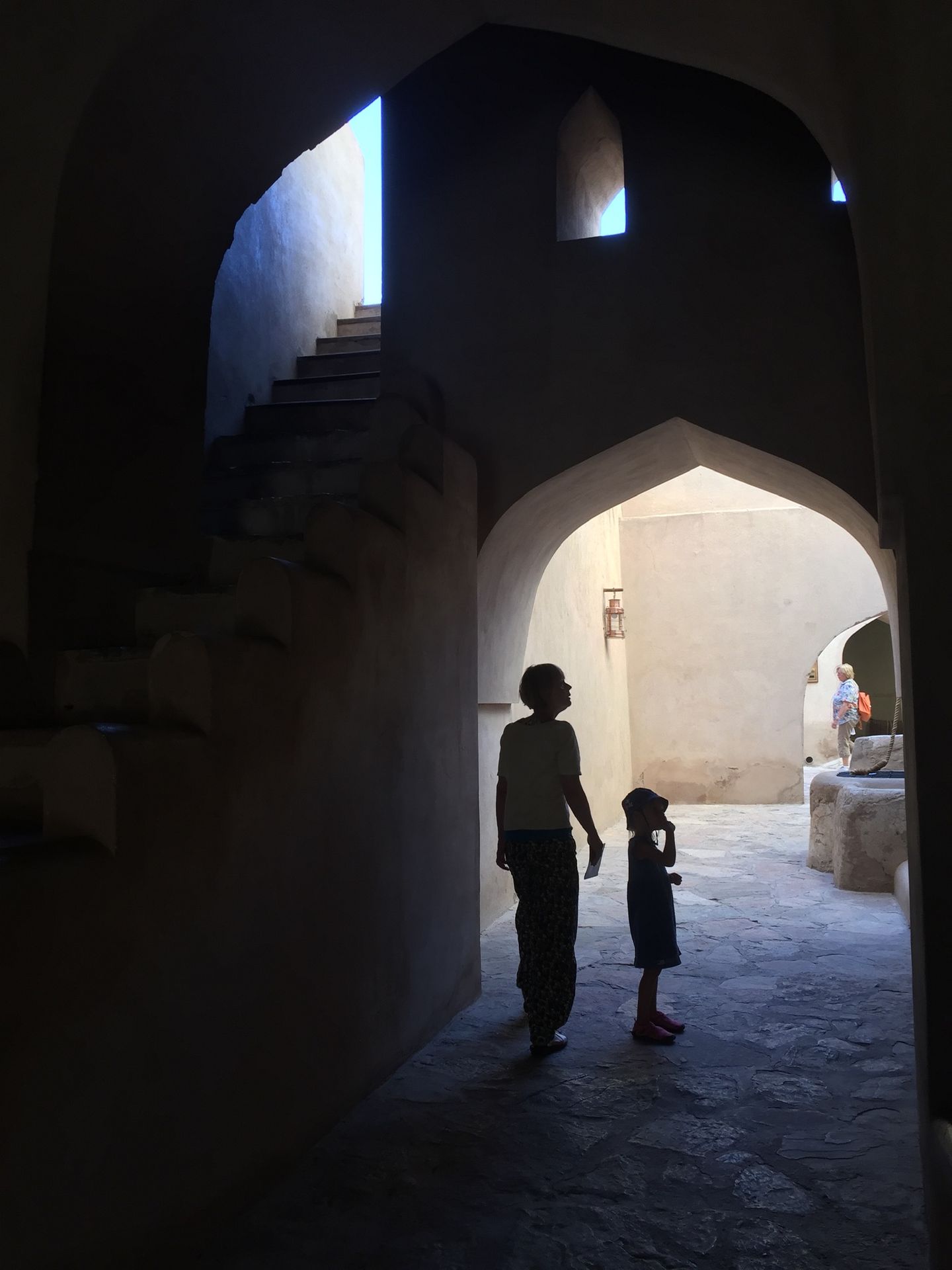

All these encounters show us how important communication and culture are in the relationship between two people. And the more different and diverse we are, the more difficult it becomes to communicate clearly. At the same time, there are so many situations in which we - despite all these differences - realize that we are all the same.
There they are, those playground moments. The encounters with other young parents who smile at us and make contact. Their tired eyes and the topics show us that all parents in the world are the same - the joy of their kids and the hard work that comes with it. A young woman approaches us directly and confides that she would much rather work more than have more children. Apparently, she is breaking with many values in her family. The magic of openness, the spontaneous closeness that arose from these intimate pieces of information, was unfortunately immediately extinguished when Didi approached us. She ignored him as a man and disappeared. There we are again with the cultural differences.
There is the Indian mom who suddenly pours her heart out to me in small talk. That her husband has squandered all the money, and with it not only lost his job and capital, but also his visa for Dubai. So she had been an illegal immigrant in her apartment for 2 years with two small children, didn't dare to speak to the neighbors or go shopping. While her husband worked day and night to earn money again. The day before our conversation, they had applied for the last passport and were able to pay off the penalty for illegal residence with bribes - finally this phase is over for them. Although our life situations could not be more different, emotions touch us. Even through wealth and nationality. Because we are all human beings and I don't know what I would do if I were in their shoes. In any case, I would be happy that it's over, and so I could feel her relief on my shoulders.

After the many desert moments and canyon hikes, we spent another day by the sea. Our local host was very warm and attentive. He was 43 years old and had just retired officially - unimaginable for us, normal for him. That's why he was bored and happy for a change. He invited us for dinner and so we spent a lovely evening together. We had also met a great couple from the Maldives who joined us. The laughter, the many discussions, the shared experiences showed us once again: people from all cultures are the same. They love their family and struggle with it. They have to work (okay, except if you retire or go on a world trip at a young age), they argue, find their positions, and enjoy discovering new things. People are people. And only when we are walking shoulder to shoulder do we realize that.

We will miss Oman. The time was too short to grasp this fascinating country. The people, whom we perceived as reserved but gentle and helpful (except when stones fly...). The nature, which presents itself so diverse and green despite the merciless heat. And so we continue to fly around the planet - first by car back to Dubai - to continue practicing the leap into weightlessness.
گېزىتلەرگە مۇشتەرى بولۇڭ
جاۋاب
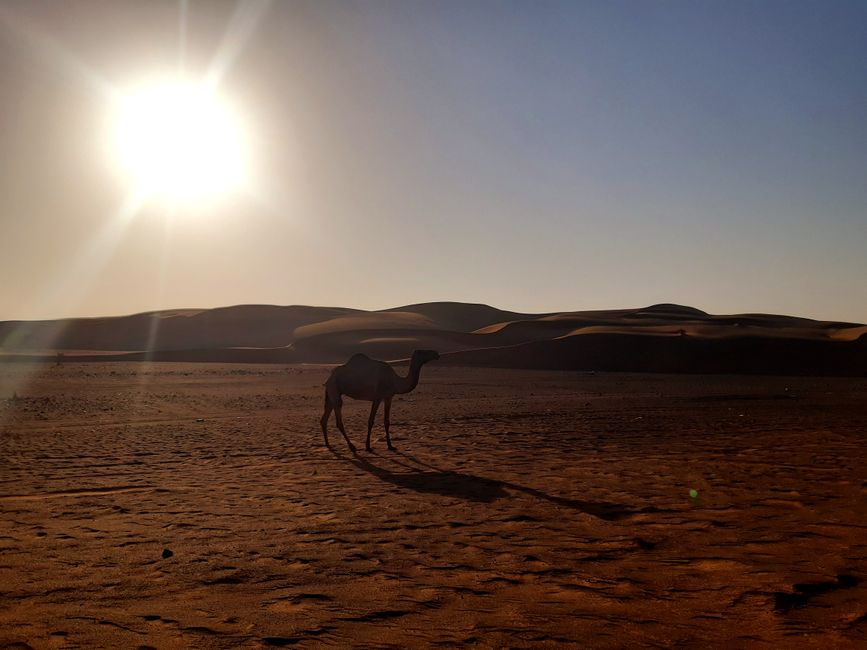
ساياھەت دوكلاتى ئومان
